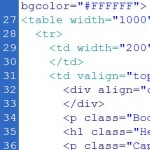Journalism Education Archive
27 Jan 2014
Indianapolis Star gets wits scared out of it by ridiculous demonic possession story

Offered as an object lesson in reporting: This credulous Indianapolis Star story about the demonic possession of a family. An editor for the Star promoted the piece on Twitter like this: Delusion or demonic possession? You decide. http://t.co/jDtwLav31Q via @indystar — Eric Dick (@IndyStarEric) January 26, 2014 No, no, no. That’s like saying “Earth —
23 Jan 2014
Homeopathic journalism, or the rise of the single-source story

I’ve learned that one thing, at least, hasn’t changed in the nearly 40 years since I started journalism school: the reluctance of young students to interview strangers. Some of my colleagues at Kent State, where I’m now teaching a Media Writing class, were talking about assigning interviews in a basic reporting class. Students almost invariably
14 Nov 2013
The Five W’s & How: Applying them to an individual fact

The Five W’s (who, what, when, where, why) and How are journalism’s double trinity. They’re generally applied to whole stories, as Jeremy Porter notes on the Journalistics blog. But they’re also a key to fact-checking, especially when you’re reporting on statistics dropped into speeches or such. An excellent example of that is a BBC News
07 Nov 2013
9 things managers do that sabotage staff training

Newsrooms facing rapid change need training more than ever. But editors — or managers and executives in any kind of organizations — can sabotage training, often without realizing what they’re doing wrong. If you’re a manager in a newsroom preparing for or going through training, watch out for these mistakes: Impatience: Training takes time. It
31 Oct 2013
What do journalism students need to know before they graduate?

What do journalism students need to know as they move into the job world? That’s what Shaina Cavazos asked in the comments on my earlier post about whether journalists need to learn coding. I’m splitting my answer into three parts: First, what most editors are looking for; second, what I would look for; third, what
28 Oct 2013
A story to boost your faith in the Future of Journalism, and warm your heart

If you want to take a break from the ginned-up debates that dominate the Twitter feeds of journalists and journalism professors when they’re not being distracted by the latest shiny things from the widget mills — and God knows, we all need a break from that — I’ve got something for you. Something that can
24 Oct 2013
The art of the link: Do’s and don’ts for embedding links in stories

It dismays me that people still have to write posts defending content curation online, as Sarah Arrow did recently on SteamFeed. But it dismays me even more that most news sites fail in their use of even individual links embedded in stories, the elemental building block of what makes the web a web and not
21 Oct 2013
To code or not to code: What do journalism students need to know?

Olga Khazan has stirred up the “should journalists learn to code” argument with an article on the Atlantic that says, bluntly, no. This must mean that the debate had been shifting toward the “yes” side, since the Atlantic sites are among those that have gone past search-engine bait and even social-media bait right to contrarian
08 Oct 2013
To boldly go where no reader has gone before

If we’re going to Save Journalism, it will be helpful to figure out exactly what we’re trying to save. I was reminded of one of the key elements when listening to a recent episode of “This American Life.” Michael Lewis reported on … a man named Emir Kamenica, whose path to college started with fleeing
20 Sep 2013
7 common pitfalls of newspaper narratives

I spent the last few days reading over many pieces of narrative non-fiction, to talk to a creative writing workshop about the mutually parasitic relationship between literature and journalism. I found myself stumbling over the same things, mostly in newspaper narratives. 1. Dialogues with the unseen, unheard extra character You’re used to filtering your interviews
